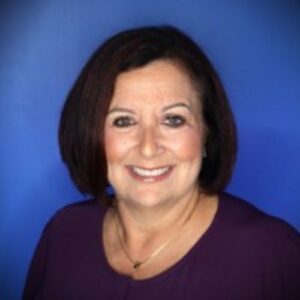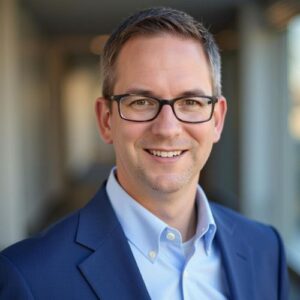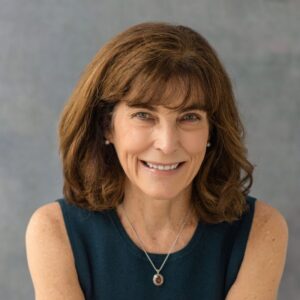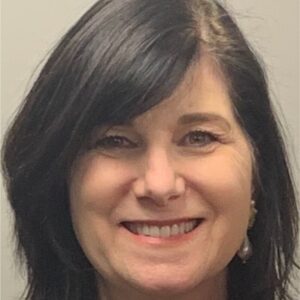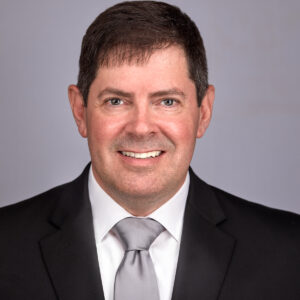Today’s Administrator and DON
|
| Today's Administrator |
| Dawn R. Rowe, CNHA, has been working in nursing homes for almost 30 years, starting at age 14 in laundry and housekeeping, and then as a nursing assistant. She obtained her administrator's license in 1988, and she has been with Life Care Centers of America for 11 years; for the last five years, she has been at Life Care Center of Tullahoma, in Tullahoma, Tennessee, a city of 18,000 roughly equidistant from Chattanooga and Nashville. Earlier this year, Rowe was given the Distinguished Administrator Award by the American College of Health Care Administrators (ACHCA). Nursing Homes/Long Term Care Management recently caught up with Rowe and got her opinions on the challenges facing today's administrator. In your opinion, what is the administrator's biggest challenge? Do you look back and see that things are different in nursing homes today as opposed to when you started working in them? How have you personally managed to adapt to these changes so successfully? How is your facility affected by staffing issues? What are some of the things that you do to maintain staff and keep them positive and motivated? What skills or personal attributes does it take to be an effective administrator? How do you balance the various responsibilities of being an administrator on a day-to-day basis? I find that it's better to be involved, not just to sit back and look at reports once a month. You need to get in there and ask questions, attend meetings, and see things firsthand. If you don't do that, you're going to miss the boat completely. You also have to be out there on the floor, answering those call lights and making beds with the CNAs and, if staff is short, even passing meals or filling water pitchers. Some days go really smoothly and others don't, but you have to stay involved in all facets because only then can you decide what is most important. In our facility, we don't live by the phrase, "It's not my job," and that has to start with me. If you could change one thing about your job, what would it be? As new regulations and technology evolve, how do you see the administrator position changing in the future? Dawn R. Rowe, CNHA, is the Executive Director of Life Care Center of Tullahoma, Tenn. Contact her at (931) 455-8557 or by fax at (931) 393-2406. |
| Today's DON Marjorie Berleth, RNC, MSHA: For 22 years I have been the DON of the Masonic Home of New Jersey, a 527-bed facility in Burlington, New Jersey. I attribute part of my success and longevity to the strong management team that works with me. Medicare and Medicaid issues are divided between two ADONs. Day-shift nurse managers and evening- and night-shift nurse supervisors provide critical supervision and presence on the units. Today's DON is generally degree-prepared for the position. Twenty-two years ago, I never had to take management or financial courses, or study the psychology of human resources. In fact, it never crossed my mind that I would ever need those skills to do my job. What I had was nursing knowledge and support from administration; the rest was a learn-as-you-go experience. Because the position has become more diversified and complicated by a growing body of regulations, staffing challenges, reimbursement issues, increased paperwork, and technologic challenges, nurses who aspire to become a DON need to acquire a solid background in these non-nursing areas. Dealing effectively with the survey system is one of my greatest challenges. I believe that it could and should have a positive instead of adversarial impact on facilities. Every institution needs monitoring, especially when that institution involves the care of people who are sick and/or frail, but it should be a collaborative process. The stress of an impending survey should not wreak havoc and disrupt a facility's daily operation. As the system stands, surveyors display the attitude that every facility they inspect is suspect and essentially a bad place where they expect to find bad things. I don't think these preconceptions serve anyone well. If a facility has good outcomes, a few undotted i's or uncrossed t's shouldn't be such a big issue if no harm is done. I wholeheartedly agree with surveyors that bad care deserves punitive actions, but the industry would be better served through collaboration. Surveyors also see many good outcomes in the field. What better way for all nursing homes to learn than by hearing about what these exemplary institutions have done through best-practice recommendations? For example, falls present a difficult problem because they place you between the regulatory devil and deep blue sea, so to speak. Regulations prohibit restraints-but you can't let your residents fall. It's a fact-older people do fall. Short of giving them all bungee cords, we need to collaborate with government and with each other to find solutions. The New Jersey Department of Health and Senior Services has taken a step in that direction by sending out a survey on falls. When the results are studied, it's possible that an effective protocol can be developed and implemented throughout the state. We need more of these initiatives from surveyors to providers of care to help us do our job. What makes a good DON? First and foremost, she (or he) needs to be a people person-the DON not only advocates for residents but for staff, as well. Computer literacy is no longer just nice to have; it's a definite must. At the Masonic Home, we take our MDS directly from the Web. Computer skills are also needed to access other systems and software that are used daily in patient care, staff scheduling, preparing documents for CMS and other government agencies, and more. We have a savvy IT department that guides us along. When computers first started appearing here, I didn't have much patience with them, but now I can keep up with my grandchildren. When I became a DON, I wasn't aware of any support groups that were available to me. Today, the National Association of Directors of Nursing Administration in Long Term Care (NADONA/LTC) and its state chapters are excellent resources for support, education, certification, and more. Professional networking is available online and in person at chapter meetings and at the annual conference. If you need to develop a policy or procedure right away, material is readily available from the state association or the national office. Through professional affiliation, you're not alone. So when a problem or question arises, it's not necessary to reinvent the wheel. Along with NADONA affiliation, I think that a DON should cultivate relationships with other related associations such as the American Medical Directors Association, the American Society of Consultant Pharmacists, and administrators' associations, to name a few. They, too, address long-term care issues that affect you and can provide a wealth of information. So that's how I see my role today. Future DONs will have less hands-on clinical opportunities because the position will continue to become increasingly administrative along with whatever new wrinkles the future adds to the job. But a DON will continue to have to demonstrate a strong grasp of clinical issues and the creative mind-set to address all the challenges ahead. Marjorie Berleth, RNC, MSHA, is the Director of Nursing at the Masonic Home of New Jersey in Burlington, New Jersey. She can be reached at mberleth@njmasonic.org. Suzanne Blanchet, RN, BS: Before transferring to New Mexico to assume the position of Corporate Clinical Services Director for Trans Health Management, Inc., I spent ten years as a DON in Louisiana. Currently, I supervise DONs at all but one of the company's long-term care facilities in New Mexico. I have experienced firsthand how the DON position has grown more complicated and demanding. When I became a DON in 1984, my position was focused exclusively on clinical care, managing the nursing department, and staffing for nursing employees. There was mention of a budget and terms like "payer source," but the DON's chief concern was resident care. My duties, in addition to staffing, included doing care plans, ordering nursing supplies, being exclusively in charge of medical records, performing medication reviews, and having sole responsibility for month-end turnover, which entailed preparing the next month's physician orders and all the medication and treatment sheets for the nurses, including MD orders, MARS, and TARS, to name a few. This simplicity is unheard of in today's DON position. Because of significant changes in long-term care, the DON must face new challenges. For all the duties listed above, there is generally another management position to fulfill them. Therefore, today's DON must recognize the importance of staff empowerment and the necessity of delegation. To maximize this team approach, she must teach, mentor, and supervise staff in carrying out their duties. No longer can one person do it all. Motivating staff is another task the DON must take on. She must find ways to care for staff and acknowledge their contributions. It is her challenge to set the tone for the facility. Staff should know that they make a difference. They should work in a dynamic learning environment, where they are challenged and have advancement opportunities. In addition to encouraging a team approach, the DON is now involved in new concepts in staffing-understanding and managing the number of staffing hours and dollars allotted to the residents. Along with this, the DON is now more involved with the budgetary expectations of her department. Another core quality of a DON is that she be able to meet the demands and pressures of a changing survey environment. The DON must deal with excessive pressure. Sometimes numerous complaint surveys, in addition to the annual process, are carried out in a less than supportive environment. Historically, the survey process was much more of a learning environment-one in which areas of improvement were identified, addressed, and resolved. It can be very challenging to keep staff motivated and focused on residents in an atmosphere that can be very draining and discouraging. As important as it is to be self-directed and be able to prioritize the multiple tasks that fall under the job description, one of the most important things a DON must remember is to take time for self-care. Nurses are characteristically caregivers. We need to remember that we can't give what we don't have. If your battery is dead, find a way to recharge it. Have personal boundaries and a sense of balance in your life and profession. Encourage and support your staff in doing the same. I can't emphasize enough the power of networking with other DONs. They are the only others who totally understand the job, its expectations, demands, and challenges. Don't rationalize that you don't have time to attend a day of in-services, to have lunch out of the facility, or to belong to a professional organization. Finding people and places that support and nurture you are critical. Keep personal and professional growth high on your list. In supervising DONs, I face my own particular set of challenges. I must teach, direct, motivate, and support them so that they can relay the information to their staffs. I am their advocate, but I am also their challenger and the one who sets the bar for clinical excellence. My previous years as a DON have prepared me for this role. Retaining DONs in their positions is another challenge I face. By no means am I the reason for their longevity, but I can have a direct effect on it. Too much care, support, time, and energy are put into develop-ing a DON to not feel frustrated when you find out that the process has to be repeated again within a few months or a year. If we could increase the professional longevity of DONs in general, it would enable me to fine-tune and advance the systems and protocols we put in place, as well as help the DONs to mature and advance. I would love to have more time to dedicate to actual teaching and hands-on mentoring of new DONs. I truly believe that this process has a positive effect on job satisfaction and retention. To make the DON's job easier, I think that administration should become aware of the complexity and high expectations inherent in this position and, if administration can't understand this, should at least provide support and respect. The DON and administration should have daily open communication. This is critical in the message it sends to staff and is fundamental to understanding the expectations of each day. To help with the new responsibilities that have been added to a DON's plate, administration should be willing to educate and include the DON in operational matters. What will the DON face in the future? I believe that she must become knowledgeable about new technologies because that will become the standard. I also believe that there will be a continuing evolution in the professionalism of long-term care nurses. DONs will have to embrace the responsibility of not only knowing what long-term care is about, but being willing to educate others-families, communities, and governing agencies. We will all have to take positive steps in being advocates for ourselves and the amazing challenges we face on a daily basis. We cannot become victims of the misinformation and misunderstanding of the community at large about long-term care and the people who provide it. Suzanne Blanchet, RN, BS, is the Corporate Clinical Services Director for Trans Health Management, Inc. For more information, send e-mail to suzanne.blanchet@thicare.com. To comment on this article, please send e-mail to hoban1104@nursinghomesmagazine.com. For reprints in quantities of 100 or more, call (866) 377-6454. |
I Advance Senior Care is the industry-leading source for practical, in-depth, business-building, and resident care information for owners, executives, administrators, and directors of nursing at assisted living communities, skilled nursing facilities, post-acute facilities, and continuing care retirement communities. The I Advance Senior Care editorial team and industry experts provide market analysis, strategic direction, policy commentary, clinical best-practices, business management, and technology breakthroughs.
I Advance Senior Care is part of the Institute for the Advancement of Senior Care and published by Plain-English Health Care.
Related Articles
Topics: Articles , Facility management , Leadership , Staffing




